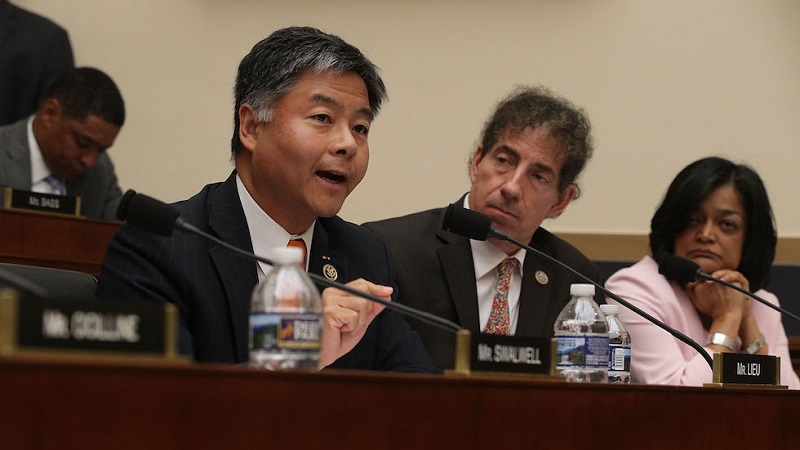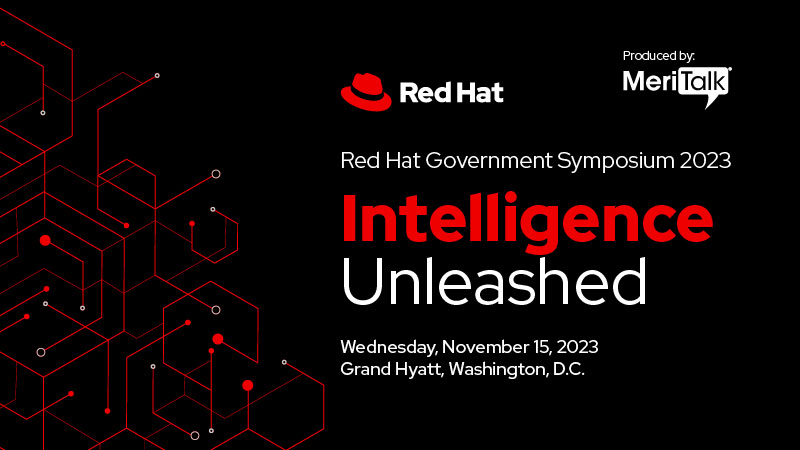
Rep. Ted Lieu, D-Calif. – one of Capitol Hill’s main policy movers for AI regulation – said today that Congress wants to place guardrails around the emerging technology in three buckets: AI that can destroy the world; AI that can kill you; and AI that would cause harm to society.
“My analogy, from the perspective of a lawmaker, is that most of AI we’re not going to regulate,” the congressman said during a Washington Post Live event today. “Think of two bodies of water: a large ocean of AI and then the small lake of AI. So, this large ocean is all the AI we don’t care about.”

For example, Rep. Lieu mentioned smart toasters using AI to make better bagels would fall into the category of AI that Congress does not need to regulate.
“The small lake of AI is AI we might want to think about, and to me there’s three buckets. The first is … AI that can destroy the world. Second is AI that isn’t going to destroy the world but can kill you individually,” he said. “There’s a lot of AI in moving objects – planes, trains, automobiles. I think we need more AI trained regulators who are more attuned to the unique aspects of AI in these different sectors.”
“And that last bucket is really the hardest, which is AI that has some sort of harm to society – whether it’s unfair monetization, or AI algorithms that discriminate in hiring based on race or gender, or facial recognition technology, which is amazing, but less accurate for people with darker skin,” Rep. Lieu said. “And that’s much harder to figure out.”
Rep. Lieu introduced bipartisan legislation earlier this summer to create a national commission that would focus on regulating AI technologies.
The National AI Commission Act would create a commission that would review the United States’ current approach to AI regulation, make recommendations on any new necessary office or governmental structure, and develop a risk-based framework for AI.
The congressman said today that a national AI commission is key to being transparent and involving the American public in creating policies around the technology.
Just last week, the Senate held a closed-door AI insight forum with dozens of leaders from the nation’s most powerful tech companies. Rep. Lieu today applauded the Senate for getting the ball rolling on AI regulation, but expressed concern that the meeting wasn’t made available to the public.
“I think it’s fantastic that the Senate’s so engaged on this,” Rep. Lieu said. “I also do want to note that the American public really has no idea what these tech titans told U.S. senators behind closed doors. I think if we want to do AI legislation, it’s got to be transparent – people need to know what we know.”
The congressman seemed encouraged by the bipartisan push in both the House and the Senate to quickly move along AI regulation, but he warned that policymakers have to do it better than when they attempted social media regulation.
“I think many Americans and many members of Congress are not particularly happy with how social media regulation turned out,” Rep. Lieu said. “And I think a number of folks don’t want to see that repeated, and I think that’s why you see a lot more momentum in both the Senate and the House on a bipartisan basis to really learn about AI and to figure out what are their risks that we want to mitigate while allowing AI to innovate and help humanity.”
Concern is looming that Congress won’t act fast enough on regulating the potentially harmful technology, however, Rep. Lieu warned that now is too early to pass AI legislation.
“There’s definitely a time period where it becomes too late. I think it can also be too early. If you were to say, ‘Hey, you should regulate AI next week,’ I don’t know how we would even define it,” Rep. Lieu said. “So, I think having some passage of time would be helpful just to see how it continues to play out in society.”
